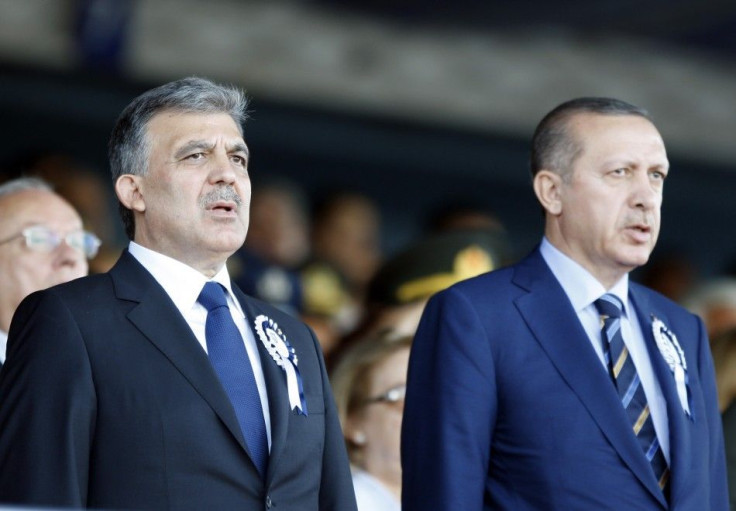Turkey Repeats Calls for Assad to Step Down

Turkish leaders have repeated their warnings to former ally Bashar al-Assad that he must step down from power in Syria.
In an address in parliament, Turkish Prime Minister Recep Tayyip Erdogan said that Assad could follow in the tragic footsteps of Adolf Hitler and Moammar Gaddafi.
Assad has again defied demands by the Arab League to end his regime’s brutal crackdown against anti-government protesters. With Turkey’s support, the League seeks to suspend Syria’s membership.
“For the welfare of your own people and the region, just leave that seat,” Erdogan hypothetically urged Assad, while speaking to a group of deputies of his ruling Justice and Development (AK) party.
Erdogan referred pointedly to remarks Assad recently made that he would fight to the death to remain in power.
“For God's sake, against whom will you fight? Fighting against your own people is not heroism, but cowardice. If you want to see someone who has fought until death against his own people, just look at Nazi Germany, just look at Hitler, at [Benito] Mussolini, at Nicolae Ceausescu in Romania. If you cannot draw any lessons from them, then look at the Libyan leader who was killed… in a manner none of us would wish for and who used the same expression you used.”
Erdogan also condemned an incident on Monday where a convoy of buses carrying Turkish pilgrims returning from Mecca was attacked by soldiers as it passed through Syria. He asked Assad to find and prosecute those responsible for this assault, as well as those Syrians who attacked Turkish missions in the country following Ankara’s endorsement of the Arab League’s movements against Syria.
Similarly, Turkey’s President Abdullah Gul, who is on a state visit to Britain, also condemned Assad and asserted his days are numbered.
Syria is now at a dead end so change is inevitable, Gul told British media.
But we don't believe the right way to create change is through external intervention. The [Syrian] people must make that change. Civil war is not something that anyone would want to see happen. Everything must be done to prevent it. It is very dangerous.
Meanwhile, Ankara has further ruffled Assad’s feathers by permitting Syrian opposition groups to establish outposts in Turkey, while also allowing the mass entry of Syrian refugees and defectors.
Gul reiterated that Assad has reached the point of no return and no more negotiations with Damascus are possible.
It's quite too late for that sort of thing now, he said. [Assad] seems to have opted for a different route. And frankly we do not have any more trust in him.
Gil also seemed to suggest that Turkey might serve as a good example for post-revolution Arab countries to follow in terms of governance.
There was a need for deep-rooted reform, he said. They [the Arab nations] could not carry on as they were forever. In the end, it would either be the people or some sort of external interference that would bring change. Turkey now is a source of inspiration to many of these countries. Based on our own experience, the job of the military is not to govern a country. If they do that, the masses will turn against them.
© Copyright IBTimes 2025. All rights reserved.





















